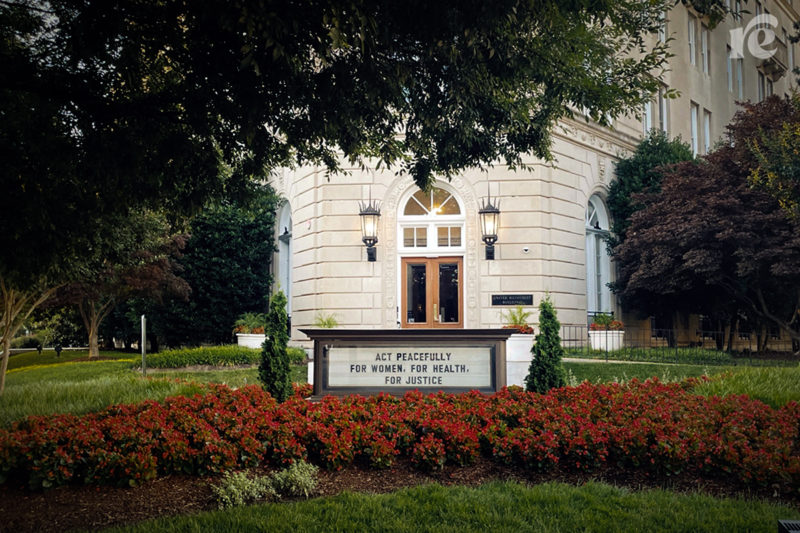Abortion Bans Are Against My Religion
The values of Christianity call on us to support reproductive rights and advocate for the health and rights of our neighbors.

For more coverage of the end of Roe v. Wade, check out our special report.
Everyone has a reproductive story. About one-fifth of pregnancies in 2020 ended in abortion. My story, which includes four pregnancies, two children, and two abortions, has made me intimately familiar with the unpredictability of fertility, the fragility of gestational development, and the sacred responsibility of parenting.
I am a professor of Christian ethics, a Presbyterian minister, and an advocate for abortion access and reproductive justice. My Presbyterian tradition affirms people’s ability and responsibility to make moral decisions about their pregnancies. My abortions were morally responsible. My abortions are part of my reproductive story.
The Supreme Court overturning Roe v. Wade and eliminating the federal constitutional right to an abortion after nearly 50 years represents a moment of deep despair for many people of faith. A vocal minority of people of faith try to assert abortion as immoral. Yet, the values of Christianity that teach us to love one another, care for our communities, and respect personal decisions also call on us to support reproductive rights and advocate for the health and rights of our neighbors.
While the American people hold a range of beliefs about the morality of abortion, the minority theological position that “human life begins at conception” is a matter of personal faith. No one religious position should be codified into law. The Presbyterian Church stated quite clearly in 2018 that “personally choosing not to have an abortion or use birth control … is religious freedom. Making that choice for someone else, on the basis of one’s own religious principles, is religious oppression.”
Religious people are troubled by this profound assault on human dignity, as the Supreme Court decision makes our bodies subject to the will of the state and jeopardizes access to abortion care for more than 36 million people in over 20 states. As the Spiritual Alliance of Communities Supporting Reproductive Dignity (SACReD) movement affirms, “the dignity of sacred bodies and the moral agency of all people deserve respect.”
I live and work in North Carolina, which is surrounded by states that will now likely criminalize or significantly reduce access to abortion. Studies anticipate that as many as 70,000 patients from nearby states could flood North Carolina’s health-care system. In 2018, 18 percent of abortion patients seen by the more than a dozen abortion providers in seen by the more than a dozen providers in North Carolina were from out of state. That number could soon increase by 2,200 percent, quadrupling the number of patients needing abortion care in North Carolina. Overflow patients will inevitably increase wait times at clinics, pushing abortions later into pregnancy.
The fall of Roe has initiated an unprecedented, targeted attack on the human dignity and moral agency of some of the most vulnerable people in our society. Let us be clear about the consequences: Pregnant people in our country will be forced to bear children against their will. Families will fall deeper into poverty. Reproductive health and people’s lives will be at risk. Caring for the most marginalized people in our society is one of the foundations of religious teachings and communities.
I work daily with religious leaders and people of faith across the country who are alarmed by this imminent threat to pregnant people’s health and safety. Support for banning abortions is a minority position. Most religious people support legal access to abortion, and very few think it should be illegal in all cases.
Recent moves to organize religious voices in support of abortion include SACReD congregations and Rabbis for Repro. These efforts reflect the need and desire for religious communities to talk more openly and honestly about abortion and the reproductive needs of their members.
One religious group cannot control the rights and freedoms of the rest of us. Denying the constitutional right to control one’s own body is harmful, cruel, and deeply antithetical to our cherished values of bodily autonomy and human dignity. Recognizing and affirming that reproductive dignity and abortion access are respected religious values is essential in a pluralistic democracy and electing legislators that respect that distinction is necessary for a just society.
